How to Seat a Tire Bead
The tire bead is the edge of the tire that makes contact with the rim (shown below). The tire bead should always be seated on the rim with no visible gaps, indents, or damage. A seated tire bead will promote a safe ride, maintain the integrity of the tire by protecting the inner tube, and help to prevent a flat tire while riding.
Side view of a wheel (first image below) and cross section of a seated tire bead (second image below)
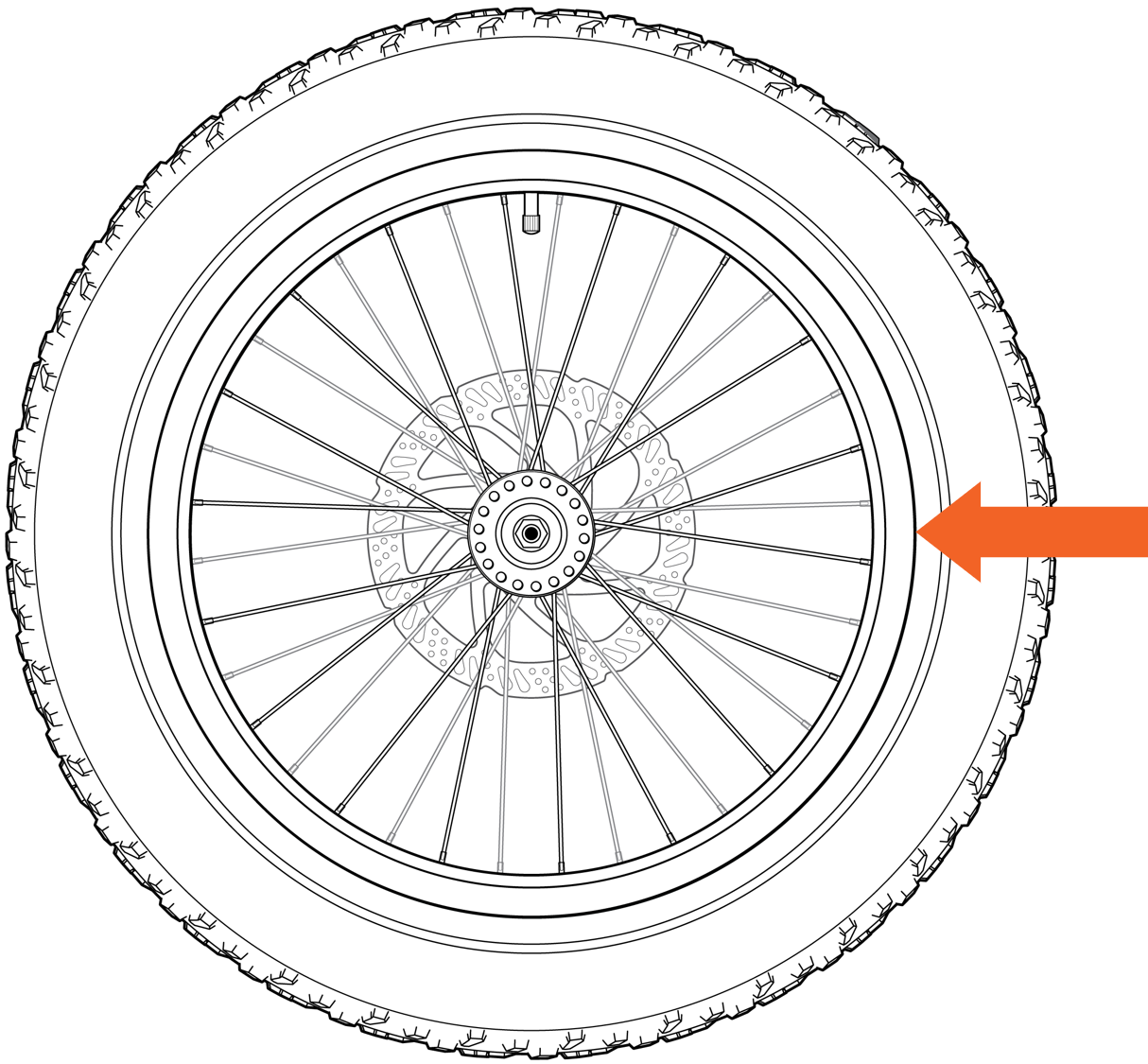 |
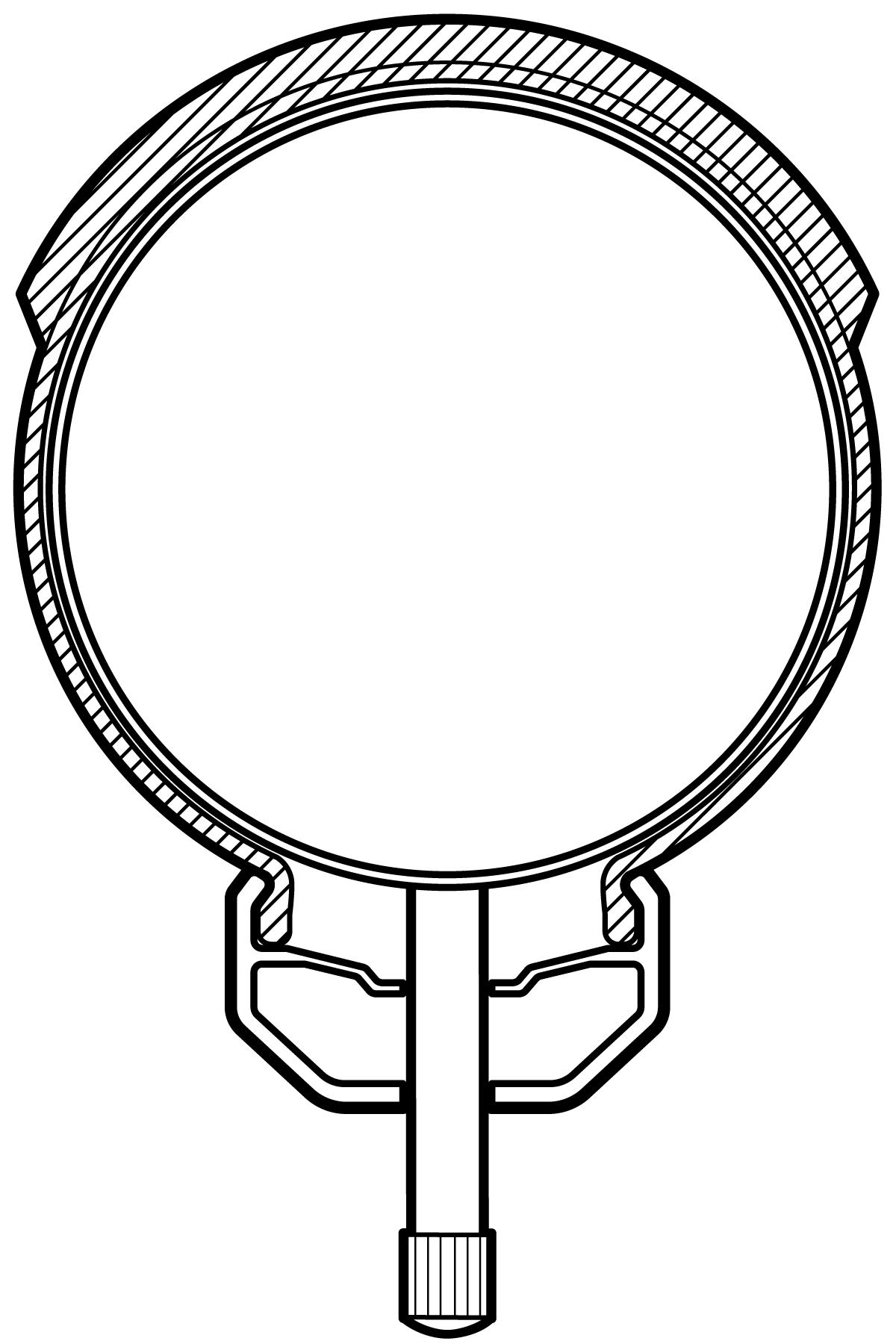 |
Check the tire bead periodically to ensure it is fully seated on the rim. Check the tire during bike assembly, when changing an inner tube, when installing a new tire, after vigorous riding, and before every ride.
Follow the steps below to check the tire bead and reseat the tire bead, if needed.
You will need:
- Water and mild liquid soap
- Paper towel
- A bike pump with a Schrader valve and a pressure gauge
If you do not have the experience, skill, and tools to maintain the wheels and tires, Rad Power Bikes highly recommends having a certified, reputable bike mechanic complete those procedures as well as any future adjustments or tuning.
- Get the bike ready for maintenance. Turn off the bike, remove the battery, and press and hold MODE (or the power button) to discharge remaining power.
- Trace the tire bead around the rim. The tire bead should be fully seated on both sides of the rim with no gaps, the convex bead indicator should be evenly spaced from the rim around the wheel, and the inner tube should not be visible. Repeat with the other tire.
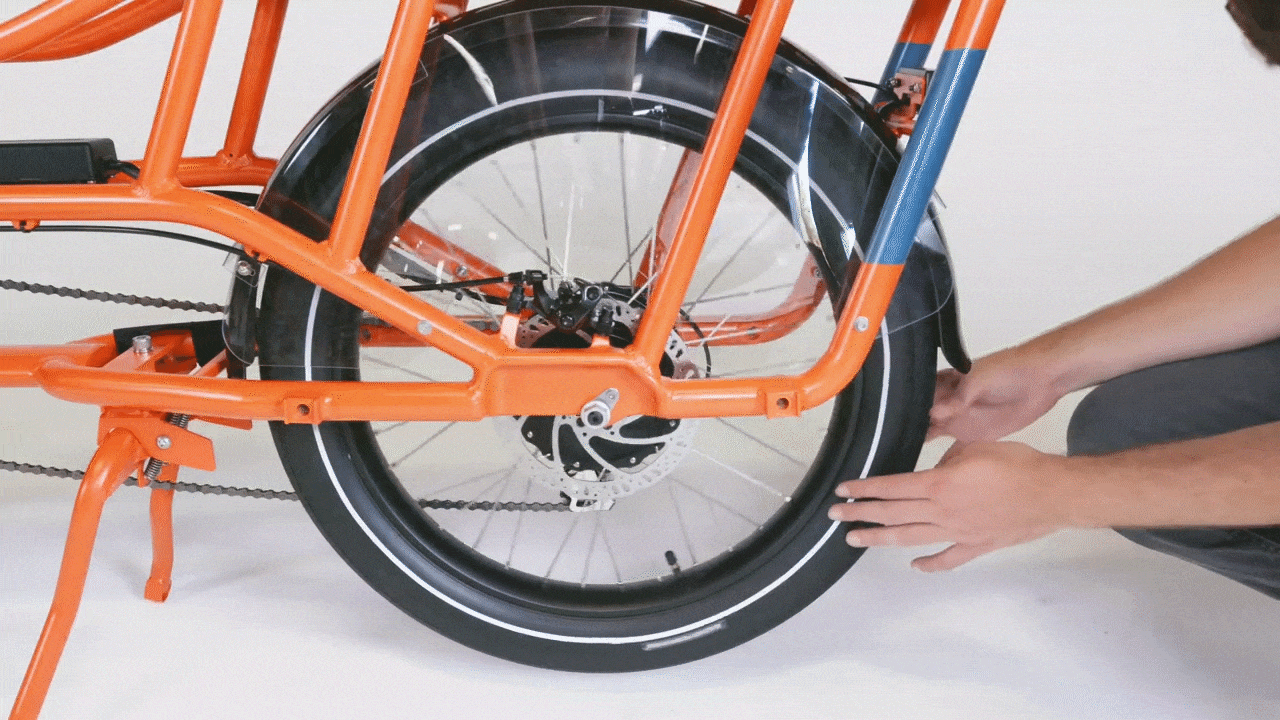
- If the tire bead is not fully seated, continue to the next step to fully seat the tire bead.
- If the tire bead is fully seated, reinstall the battery, test the bike fully, and ride Rad!
- Reseat the tire bead using the steps below, if needed.
- Slowly let out the air from the tube valve until the tire is almost deflated. Use an Allen wrench to carefully press down on the valve to release air from the tube. This will create some slack in the tire.
- Wipe the entire tire bead with a paper towel moistened with mild soapy water. This will provide temporary lubrication while you attempt to reseat the tire bead.
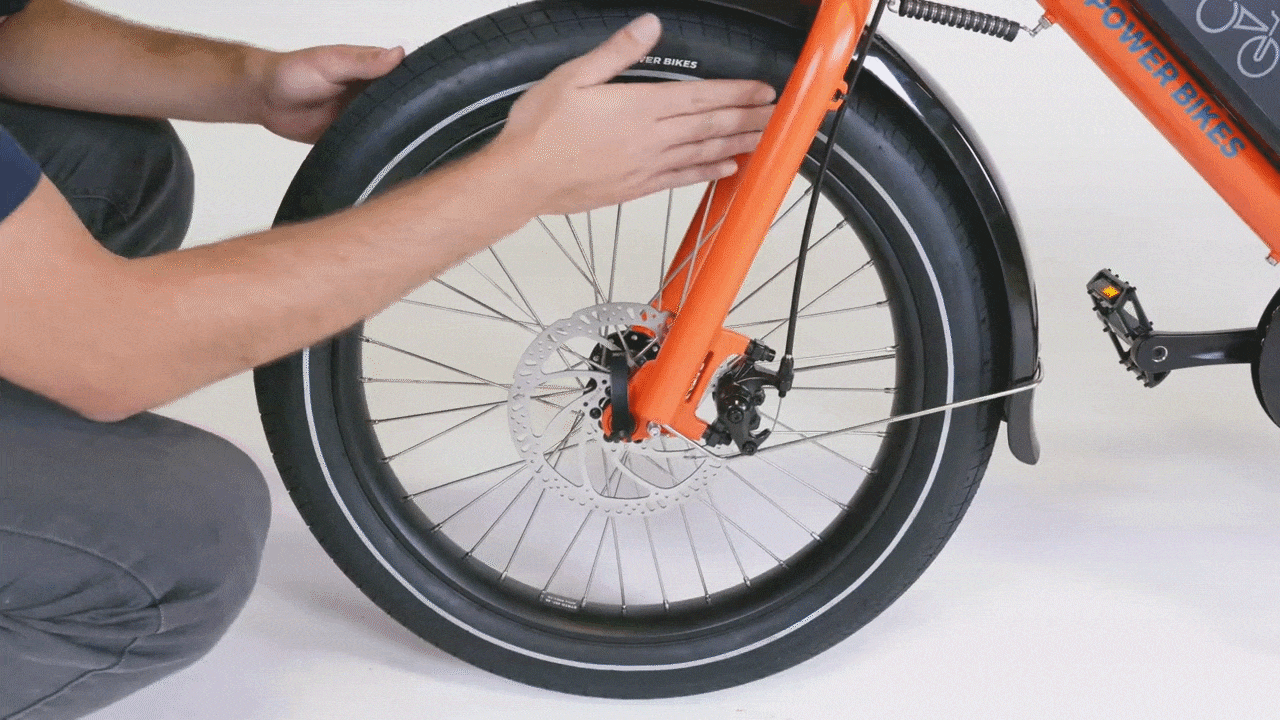
- Carefully press the tire bead into place until it is fully seated on the rim. Ensure the inner tube doesn't get caught in between the tire and the rim. The tire bead track should follow the edge of the rim, as shown below. Check the other side of the tire to ensure the tire bead remains seated.
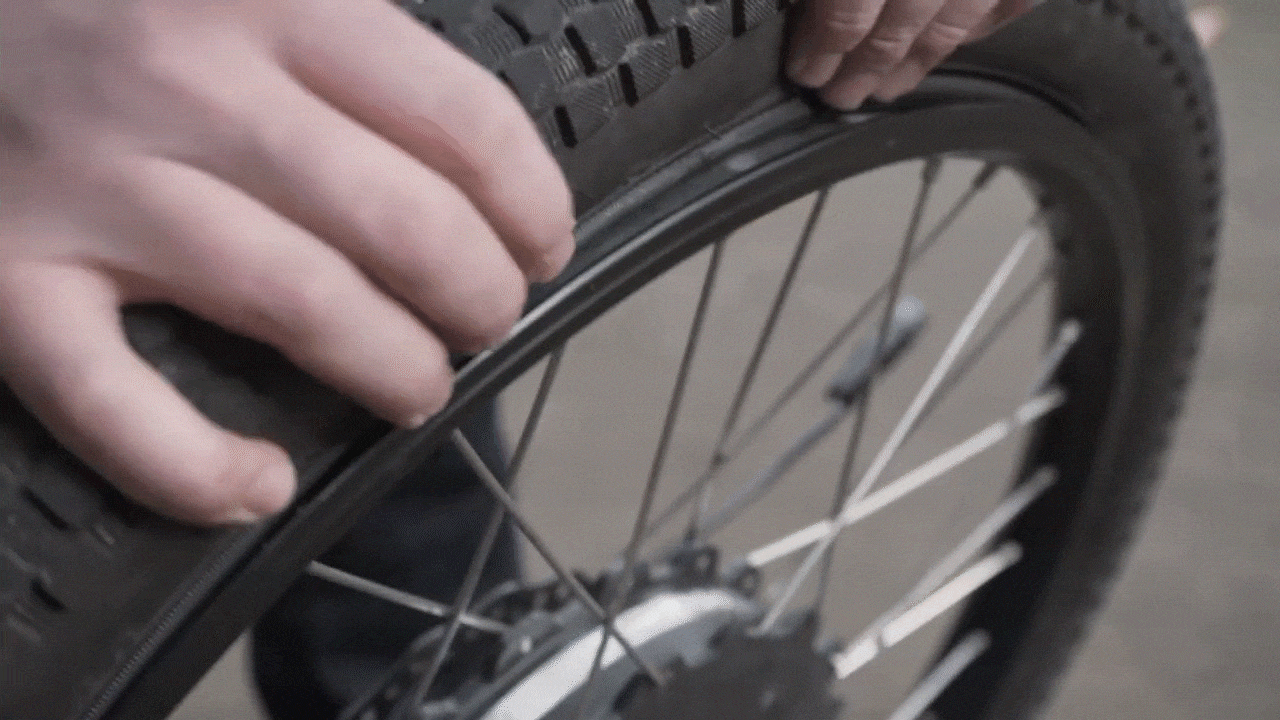
- Inflate the tires slightly (to about 10-15 PSI), then check the tire bead to make sure it is still fully seated.
- If the tire bead becomes unseated while inflating, deflate the tire and repeat step 3 to reseat the tire and try to inflate it again.
- If the tire bead is seated at 10-15 PSI, continue to the next step to fully inflate the tire.
- Inflate the tires to the PSI listed on the tire sidewall. Do not overinflate the tires.
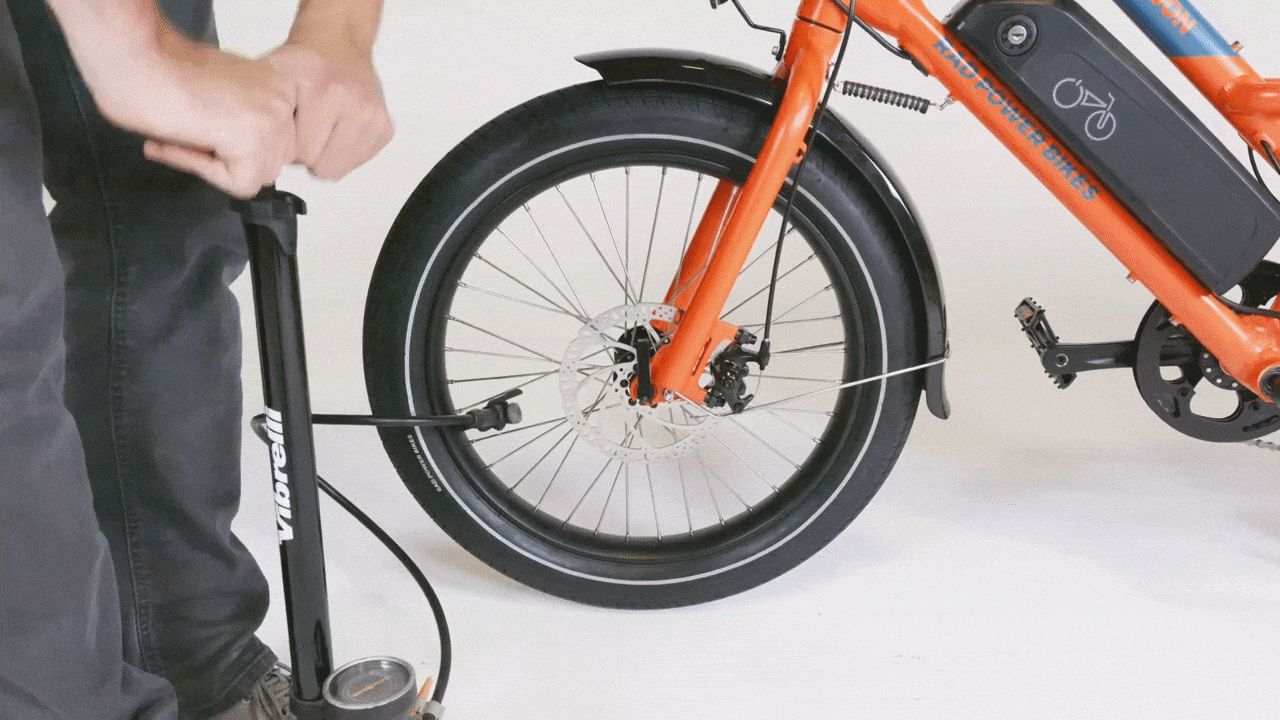
Tires should be inflated to the recommended value listed on the tire sidewall. Do not overinflate or underinflate a tire. Always check your tire pressure before every ride.
- Trace the tire bead to ensure it is fully seated on the rim.
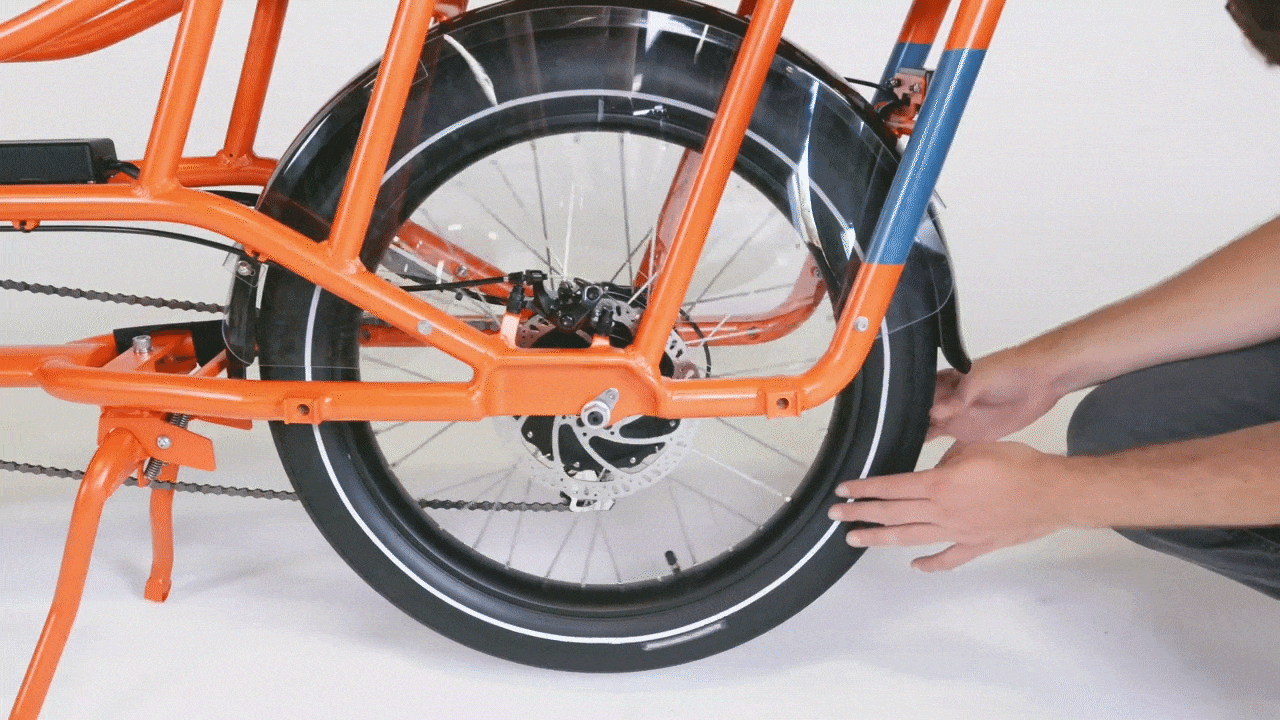
- If the tire bead cannot be seated or appears damaged, contact us for more help.
- If the tire bead is fully seated, reinstall the battery, test the bike fully, and ride Rad!
